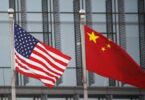Vladislav Ivanov
Russian investment in US government debt has fallen to $2.41 billion, the lowest level in history. Due to the refusal to invest in US government bonds, Moscow intends to secure its foreign exchange reserves, experts say. So, in the event of an increase in geopolitical tension, funds placed in US debt securities may be frozen, experts say. Against this background, Russia has been steadily reducing the share of the dollar in its cash reserves in recent years and is actively buying euros, as well as Chinese yuan.
Legion Media
Russia has cut its investment in US government bonds (treasuries) to a record high. This is evidenced by data from the US Treasury. According to the department’s materials, in November 2021, Moscow’s total investment in United States Treasury securities fell by more than a third, to $2.41 billion. The value was the lowest since 2007.
In general, over the 11 months of 2021, the amount of Russian investments in US debt securities decreased by 2.5 times. The systematic rejection of Treasuries may be associated with the desire of the Central Bank to secure Russia’s foreign exchange reserves. This point of view was expressed in an interview with RT by Nikita Maslennikov, head of the Finance and Economics department at the Institute of Contemporary Development.
“Current actions fit into the de-dollarization policy, which our government has been pursuing for many years now. Thus, in part, Russia is trying to protect itself from the risks of new sanctions restrictions, ”the expert explained.
According to him, the American authorities often use their currency as leverage. So, in the event of a strengthening of the geopolitical situation, the funds placed in debt bonds can even be frozen, the specialist did not rule out.
“In addition, the reason for the decline in investment in treasuries could be a change in market conditions. The state, like any investor, sells an asset when it considers it profitable. Perhaps, against the backdrop of a change in US economic policy, Moscow decided to get rid of some of the dollars, but later it may buy the asset back a little, ”added Maslennikov.
Note that US Treasury Treasuries are debt obligations guaranteed by the government of the country. States buy securities and receive a stable income from them. In other words, government bondholders lend their money to the American economy.
To date, about 26% of the total US debt ($29.7 trillion) is accounted for by treasury securities. At the same time, the largest volumes of treasuries belong to Japan (in the amount of $1.34 trillion), China ($1.08 trillion) and the UK ($622 billion).
It is noteworthy that until 2018, Russia was also among the main holders of the US government debt. So, at the end of 2017, the country was the 15th largest buyer of treasuries and at that time had US government bonds worth almost $103 billion.
However, in the spring of 2018, Moscow began to sharply sell US debt securities. Then, from March to May, against the backdrop of the introduction of new sanctions by Washington and the aggravation of geopolitical risks, the volume of Russian investments in treasuries decreased by more than six times – to $ 14.9 billion. Since then, the figure has not risen above this mark.
Cash replacement
If necessary, Russia can completely abandon investments in US government bonds. This, in turn, can cause a serious resonance in the global financial market. Alexander Razuvaev, a member of the Supervisory Board of the Guild of Financial Analysts and Risk Managers, shared this opinion in an interview with RT.
According to the specialist, Russian investments in the US government debt also directly depend on the trade turnover between Russia and the United States. Traditionally, the money received from exports is spent by a country either on importing goods from its trading partner, or on buying its debt securities for additional profit.
“One way or another, for us, dollars are a toxic asset, because there are always risks of sanctions. At the same time, we do not have such a significant trade turnover with the States as, for example, with Europe and China. Against this background, the shares of euro and yuan are growing in our reserves,” Razuvaev added.
In July 2021, the Russian Ministry of Finance excluded the US dollar from the structure of the National Welfare Fund (NWF). At the same time, it was decided to reduce the share of the pound sterling to 5%, while the shares of the euro and the Chinese yuan, on the contrary, rose to 39.7% and 30.4%, respectively. The share of the Japanese yen was 4.7%, and non-cash gold – 20.2%.
A similar strategy is followed by the Central Bank in the formation of gold and foreign exchange reserves (GFR) of Russia. According to the latest data from the Central Bank, from January 2018 to June 2021, the share of the dollar in the international reserves of the regulator decreased almost three times – from 45.8% to 16.4%. At the same time, the share of the euro increased by about one and a half times – from 21.7 to 32.3%, and the share of the yuan – almost five times, from 2.8 to 13.1%.
According to experts, the actions of the Russian financial authorities are in line with the global trend. Thus, according to the International Monetary Fund (IMF), over the past five years, the share of the dollar in world reserves has fallen from 64.7 to 59.15%. At the same time, the share of the euro rose from 19.68% to 20.48%, and the share of the yuan from 0% to 2.66%.
According to Alexander Razuvaev, today the euro is a less politicized currency, unlike the dollar. Against this background, many states increasingly prefer to conduct transactions in the European currency. Nikita Maslennikov adheres to a similar assessment.
“Global de-dollarization is a normal trend that started back in 2008. The world is moving towards multipolarity, as is the world economy. I think that the share of the dollar will continue to decline for the next 10-15 years, as this is beneficial to all participants in the financial market, ”concluded Maslennikov.
Courtesy: (russian.rt)






